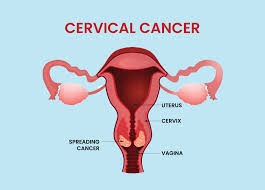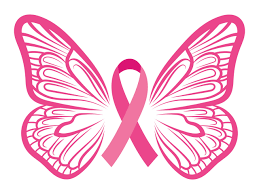Cervical cancer is a silent but deadly disease that continues to claim the lives of thousands of Ghanaian women each year. Despite being preventable and treatable, it remains the second most common cancer among women in Ghana, after breast cancer. The tragedy lies not in the disease itself, but in the fact that most of these deaths could be avoided through early detection, vaccination, and public education.
What Is Cervical Cancer?
Cervical cancer begins in the cells lining the cervix—the lower part of the uterus that connects to the vagina. It is primarily caused by persistent infection with high-risk strains of the Human Papillomavirus (HPV), especially HPV-16 and HPV-18. While HPV is a common sexually transmitted infection, in most cases the body clears it naturally. However, in some women, the virus persists and causes abnormal cell changes that can lead to cancer.
The Burden in Ghana
According to the World Health Organization, Ghana records approximately 2,797 new cases of cervical cancer and 1,699 deaths annually. Other sources estimate even higher figures, with over 3,000 diagnoses and more than 2,000 deaths each year—representing a mortality rate of 67%. These numbers are alarming, especially considering that cervical cancer is one of the most preventable forms of cancer.
Why Are So Many Women Dying?
The high mortality rate is largely due to late diagnosis. Many women in Ghana are diagnosed at advanced stages when treatment options are limited and less effective. This is caused by:
- Low awareness of the disease and its risk factors
- Limited access to screening services, especially in rural areas
- Cultural stigma and misconceptions about cancer and its treatment
- High treatment costs and a shortage of specialized care
Shockingly, only 3% of Ghana’s female population undergo regular screening for cervical cancer .
Risk Factors
Several factors increase the risk of developing cervical cancer:
- Early sexual activity
- Multiple sexual partners
- Weakened immune system (e.g., HIV/AIDS)
- Smoking
- Long-term use of oral contraceptives
Prevention and Early Detection
The good news is that cervical cancer is highly preventable. Here’s how:
- HPV Vaccination: Vaccines like Gardasil and Cervarix protect against the most dangerous HPV strains. The Ghana Health Service has begun rolling out HPV vaccination programs for girls aged 9–14.
- Regular Screening: Pap smears and Visual Inspection with Acetic Acid (VIA) can detect precancerous changes early.
- Public Education: Raising awareness about symptoms, risk factors, and the importance of screening is crucial.
A Call to Action
Cervical cancer should not be a death sentence. With the right policies, education, and healthcare infrastructure, Ghana can drastically reduce its cervical cancer burden. As a health advocate, you can play a vital role by:
- Encouraging women to get screened regularly
- Promoting HPV vaccination for young girls
- Dispelling myths and stigma around cancer
- Supporting organizations that provide free or low-cost screening
Let’s work together to ensure that no woman in Ghana dies from a disease that is both preventable and treatable.





Comments (0)
Leave a Comment
No comments yet. Be the first to share your thoughts!